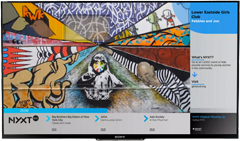July is Minority Mental Health Awareness Month, so we want to take some time to highlight some of the struggles of minorities suffering from mental illness. On average, minority communities have less access to information and experience higher levels of stigma surrounding mental illness. Language barriers and poverty can also contribute to a lack of diagnosis and treatment. Increasing understanding of the needs of diverse populations can help to educate providers, decrease stigma, and help improve access to mental community healthcare.
1. Minority Mental Health Awareness Month was established to honor the legacy of Bebe Moore Campbell.
Bebe Moore Campbell was a mental health advocate and author who passed away in 2006. A novelist, Campbell’s works challenged popular stereotypes of black people and told stories of the racism experienced by African Americans. An outspoken activist for mental health awareness, she published 72 Hour Hold, a novel about bipolar disorder, and was a co-Founder of the National Alliance for the Mentally Ill -- Los Angeles.
2. Minority Mental Health by the Numbers
Approximately 1 in 5 adults in the U.S. have experienced mental illness, and minorities face increased incidence due to the stresses of discrimination, poverty, and poor access to treatment.
- African Americans are 20% more likely to experience serious mental health problems than the general population
- 28% of American Indian and Alaskan Native individuals are living with a mental health condition, the highest rate of any racial group in the United States.
- Just 5% of Hispanics reported using antidepressants, despite the fact that 27% are living with depression
- Only 4.4% of Asian men and 5.3% of Asian women in America reported using mental health services
- LGBTQ youth are 2-3 times more likely to attempt suicide than straight peers.
3. Cultural Awareness Improves Care
The health care system can often be culturally insensitive and fail to address the linguistic needs, religious beliefs, or privacy concerns of minority patients. Around 21% of the people living in the U.S. speak a language other than English at home, but half of all patients responding to a Commonwealth Fund survey say that a translator would not or could not be provided when one was requested in a medical facility. 11% of transgender individuals have reported that they were refused care by mental health clinics due to bias and intolerance. These shortcomings can lead to frustration and fear and can discourage minority populations from seeking treatment. Cultural awareness and sensitivity training, bilingual staffing, and community partnerships can all help to make mental health clinics and providers’ offices safe and trusted spaces.
4. Mental Health Care for the Incarcerated
Most correctional facilities do not have the staff and resources to provide adequate mental health care to prisoners with mental illness, although 2 million people with mental illness are jailed or imprisoned each year. Minorities face the highest rates of incarceration in the United States. These rates are higher for people of color/religious minorities/LGBTs based on racial/gendered profiling, the criminalization of poor people, and using prisons as a means of social control. African Americans are incarcerated at 5 times the rate of whites, and although they make up just 36% of the population, African American and Hispanic men and women represent 56% of all US prisoners.
5. Poverty Blocks Access to Care
Even though overall care for mental illness is improving in the U.S., the disparities between health care access for white and minority populations persist, mirroring the current state of income inequality between white and non-white households. People of color also make up over half (55%) of the uninsured population in the United States. Poverty and lack of insurance are the leading indicators for poor quality and access to medical care. While minority individuals and families are unable to pay insurance and medical fees, poverty continues to be a major barrier to mental health treatment.
See Health Volunteer Opportunities in Manhattan
Be sure to check out these organizations working on behalf of the rights of minorities and find out how you can support their goals during Minority Mental Health Awareness Month:
- Human Rights Watch is a New York City-based NGO that promotes human rights and justice and defends the rights of the people worldwide.
- The Innocence Project works to exonerate the wrongfully convicted and reform the criminal justice system to prevent future injustices.
- Open Society Foundations work to build vibrant and tolerant democracies that are accountable and open to the participation of all people.
- Correctional Association of New York advocates for a more humane and effective criminal justice system and a more just and equitable society.
- NAMI-NYC provides much-needed resources for New Yorkers living with mental illness and support for their loved ones.
- American Foundation for Suicide Prevention works to break down stigmas surrounding mental health through awareness and funding for research.
Sources:
https://www.nami.org/
https://minorityhealth.hhs.gov/
http://www.naacp.org/criminal-justice-fact-sheet/
https://www.nimh.nih.gov/about/organization/gmh/minority-health-and-mental-health-disparities-program.shtml
http://www.kff.org/disparities-policy/issue-brief/health-coverage-by-race-and-ethnicity-the-potential-impact-of-the-affordable-care-act/
http://www.latina.com/lifestyle/health/latina-mental-health-facts
http://www.nytimes.com/2009/08/09/opinion/09ehrenreich.html
http://www.newyorker.com/magazine/2012/01/30/the-caging-of-america
https://www.psychologytoday.com/blog/wicked-deeds/201402/the-race-incarcerate-locking-poor-people-color
https://www.aclu.org/issues/racial-justice/race-and-criminal-justice/racial-profiling
Subscribe to the NYXT newsletter
Learn about upcoming events, volunteer opportunities, and new organizations looking for your help.


